Search
Remove Ads
Advertisement
Summary 
Loading AI-generated summary based on World History Encyclopedia articles ...
Search Results
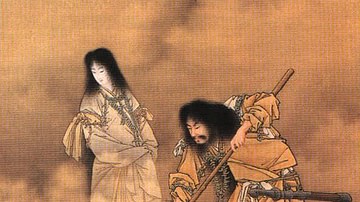
Definition
Kojiki - Japan's Oldest Book
The Kojiki ('Record of Ancient Things') is the oldest book of Japanese history and the oldest text of any kind from Japan. Compiled in 712 CE by the court scholar Ono Yasumaro, the work begins with the gods and the creation of the world...
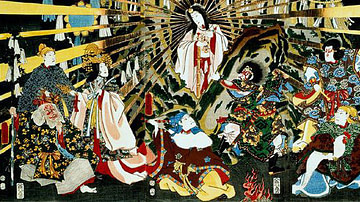
Definition
Nihon Shoki
The Nihon Shoki ('Chronicle of Japan' and also known as the Nihongi) is an official history of Japan which was written by a committee of court scholars in 720 CE. It is a compilation of myths and legends concerning the Shinto gods and episodes...

Definition
Shinto
Shinto means 'way of the gods' and it is the oldest religion in Japan. Shinto's key concepts include purity, harmony, family respect, and subordination of the individual before the group. The faith has no founder or prophets and there is...
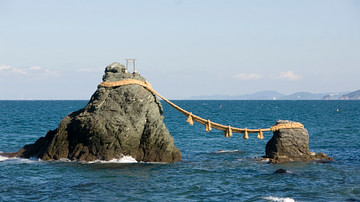
Definition
Izanami and Izanagi
Izanami ('she who invites') and Izanagi ('he who invites') are the primordial gods of the Shinto religion who are believed to have created the islands of Japan and given birth to many of the other Shinto gods or kami. The myths of Japanese...

Definition
Kagutsuchi
Kagutsuchi (aka Hi-no-Kagutsuchi) is the Shinto god or kami of fire and is also known as Homusubi. The son of Izanami and Izanagi, the fire god is the father of eight warrior gods and eight mountain gods, amongst others. Such a destructive...
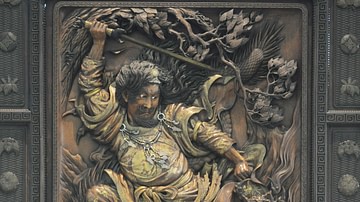
Definition
Yomi
Yomi, or Yomi-tsu-kuni, is the underworld of the Shinto religion, even if it forms no part of Shinto theology and appears only in ancient myths as told in the 8th-century CE Kojiki, notably the story of the creator gods Izanami and Izanagi...
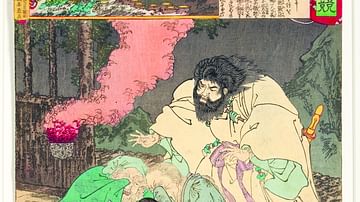
Definition
Susanoo
Take-haya-Susa-no-wo or Susanoo is the storm god of the Shinto religion. He is the younger brother of the sun goddess Amaterasu and infamous for his mischievous and sometimes destructive behaviour. Consequently, Susanoo has a reputation for...

Collection
The Shinto Religion
Shinto is the oldest religion in Japan and has become an integral part of that country's culture whether it be in daily worship and ritual, the famous tourist site shrines or the appearance of Shinto characters in contemporary comics and...
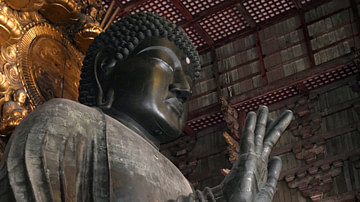
Definition
Nara Period
The Nara Period (Nara Jidai) of ancient Japan (710-794 CE), so called because for most of that time the capital was located at Nara, then known as Heijokyo, was a short period of transition prior to the significant Heian Period. Despite the...
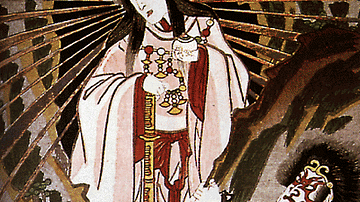
Definition
Amaterasu - Shinto's Greatest Goddess
Amaterasu Omikami ('the Great Divinity Illuminating Heaven') is the sun goddess and most important deity of the Shinto religion. Amaterasu is the ruler of Takama no Hara (the High Celestial Plain), the domain of the kami or spirits. The most...